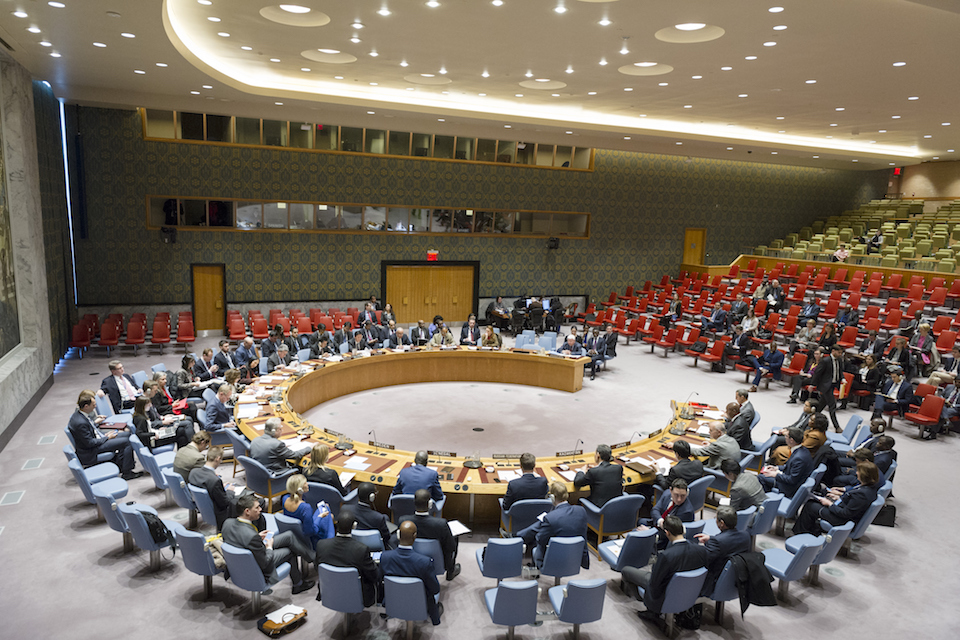"Central African Republic needs more than just plans and pledges"
Statement by Ambassador Matthew Rycroft, UK Permanent Representative to the United Nations, at the Security Council briefing on the Central African Republic.

I would like to begin by welcoming President Touadera to the Council and thanking him for his briefing, as well as the other briefers for theirs.
It has been a significant twelve months for the Central African Republic. The peaceful and credible elections that saw you, Mr President, elected were a welcome moment of hope for a country that has endured crisis for far too long. And the National Plan for Recovery and Peacebuilding, agreed in November, sets out a clear pathway forward. It will move the country on and away from the cycle of conflict.
In that effort the Central African Republic will have the international community’s support, including $44 million from the United Kingdom.
But the Central African Republic needs more than just plans and pledges. What it really needs is implementation delivery, both by the Government and by us in the international community.
Because as the past twelve months have sadly shown, progress is fragile. The hope of March 2016 risks being replaced by the violence, displacement, humanitarian urgency, and fear of the past. Having come so far, the risk of reversal, the risk of deterioration, a return to the chaos of the past, is now a painful reality that we must confront. In response, we see four steps.
First, the Government of the Central African Republic, with support from MINUSCA, must secure an agreement with armed groups to cease attacks on civilians as well as for their disarmament and demobilisation. They can’t be allowed to derail progress in pursuit of their own short term self interest.
Second, more effort needs to be made on disarmament, demobilisation, and reintegration of ex-Seleka faction and anti-Balaka groups. We welcome the President’s Consultative Committee as the formal framework for DDR with all armed groups represented, as we heard today. Efforts to support mediation, in particular the Angola-led African Initiative, are all welcome. Any initiative must support the President’s authority, be in coordination with the UN, and respect the will of the Central African Republic people to end impunity as demonstrated at the Bangui Forum.
Third, for long term stability, it’s essential that the Central African Republic’s own armed forces can provide the security and stability that the people deserve. That means reform of the armed forces. And we stand ready to support the country in that effort.
Fourth, and finally, if the Central African Republic is to move beyond the violence, there must be accountability. Not only will that bring justice for those who have suffered but it will also send a clear message to armed groups that they cannot kill and maim with impunity. This Council has given our support for the development of a Special Criminal Court and we’ve mandated MINUSCA to help make it happen. And now we need to see implementation.
In conclusion, the Central African Republic is at a critical juncture. There is a possibility for sustainable peace, but that possibility narrows as the security situation deteriorates. Having endured conflict and chaos for so long, having stepped away from the brink of genocide in 2014, the people of the Central African Republic deserve a peaceful future, not a return to a hateful past. Mr President of the Republic, we stand ready to support you so that the Central African Republic can finally break the cycle of conflict.
Thank you.